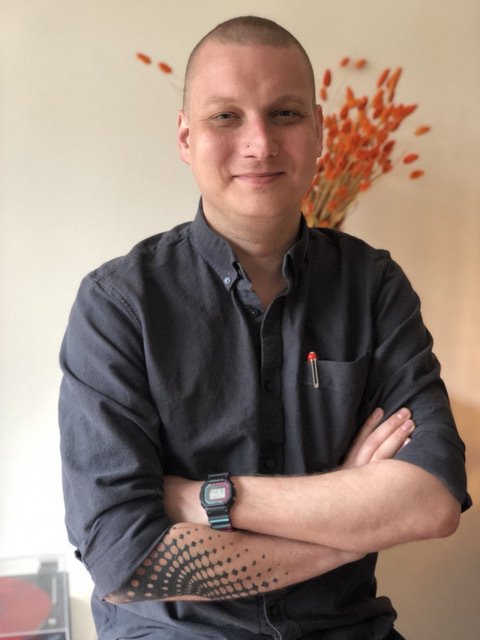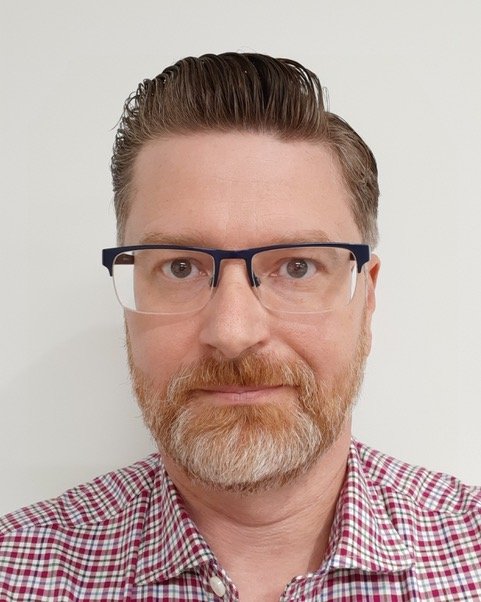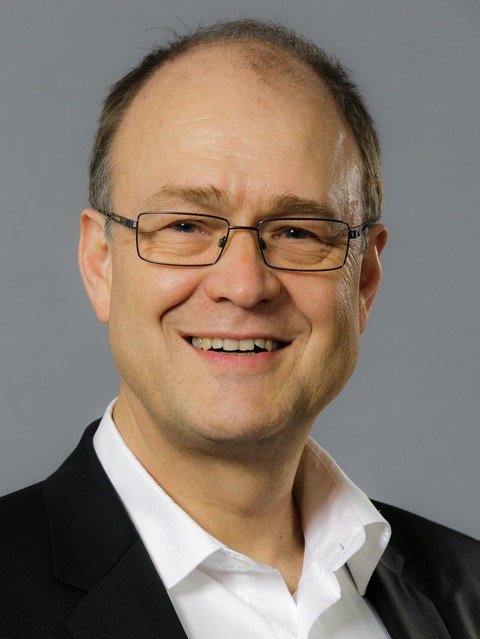Candidate Biographies
Job Snijders
Background

Job Snijders is a principal engineer at Fastly where he analyzes and architects global networks for future growth. Prior to this role, Job led routing security initiatives at NTT Ltd's Global IP Network.
Job has been actively involved in the Internet community in both operational and engineering capacity, and as a frequent presenter at network operator meetings such as RIPE, ITNOG, DKNOG, NANOG, APRICOT & NLNOG. Job co-chairs the IETF GROW and RIPE Routing working group, is director of the Route Server Support Foundation, and vice-president of PeeringDB.
Job has 15 years’ of experience in large scale internet network architecture and planning including capacity, budgeting, program management, and deployment and delivery.
Motivation
I'd like RIPE NCC to provide affordable, reliable, and performant service of their various allocation and registration roles.
The advent of the RPKI has sharply increased the Internet community's operational dependency on RIPE NCC. This industry trend requires the NCC to adapt its policies and procedures to meet the membership's most stringent uptime requirements. I believe the Executive Board now requires more hands-on technical expertise to help shape a strategy towards 100% uptime.
I can contribute to the development of the Activity Plan by ensuring the organization will focus on uncovering and resolving technical debt, understanding what performance objectives really matter, and how to invest to mature the organization's operational posture.
While RPKI is my passion, RIPE NCC must also continue to be a world class run registry leading the world in registry operations. This means maintaining efficient operations, managing to budget, and schedule. This all must be done while providing quality service to members and community members at an affordable rate, keeping fees and dues reasonable without the needs for increasing the overall budget. I'm committed to invest time and energy to help RIPE NCC achieve this.
Piotr Strzyżewski
Background

Piotr Strzyżewski works as a Lead Architect Information Security for Eurofins Group and he has been serving as the RIPE NCC Executive Board Secretary.
For more than 20 years, Piotr worked at the Silesian University of Technology Computer Centre, holding various positions, from operational and engineering to managerial.
Simultaneously, he volunteered for several organizations and initiatives, which has provided him with a broad perspective and experience in academia as well as non-for-profit and commercial environment.
His professional interests focus on both security and leadership, which led him to become a Certified Information Systems Security Professional (CISSP) and to take and pass the exam for a Certified Information Security Manager (CISM).
Piotr has been involved in the RIPE community for 15 years. In that time, he became a co-chair of the RIPE Database Working Group and a member of the RIPE Anti-Abuse Contact Management Task Force. In this term that is about to end not only has he served as the RIPE NCC Executive Board Secretary, but he has also been the Board Liaison with the RIPE Nominating Committee and a member of the MD Hiring Committee. He brings both his expertise and detail-oriented personality as an asset to the Board.
In the past, he did pioneering work in launching the eduroam project in Poland (one of the biggest world-wide roaming access services developed for users in research and education) and he was one of the core members of the Silesian Linux Users Group in the 1990s.
Being an enthusiast of open knowledge he gives lectures on Linux, networks, and security. Piotr holds an MSc degree in Computer Science and is currently a Cybersecurity Management student at one of the best higher education institutions in Poland. He is a passionate traveller and yachtsman with a yacht captain’s license. He voluntarily served a couple of times as a mate on board in Tall Ships Races, coaching trainee sailors.
Activity for RIPE and the RIPE NCC
- Executive Board Member, Secretary
- Member of the Anti-Abuse Contact Management Task Force
- Member of the RIPE NCC Charging Scheme Task Force
- Former Co-Chair of the RIPE Database Working Group
Motivation
When I ran three years ago, I made a promise to focus on the underrepresented countries of our region. I fulfilled this promise by attending all regional meetings, roundtables, and events dedicated to sub-communities within our service region. I keep doing it even in the ongoing pandemic as these events have moved to the virtual world and meetings have been held online. In the upcoming term I intend to focus on the following issues:
- Further collaboration with underrepresented communities to ensure and maintain inclusiveness for all our members
- Cooperation with different stakeholders inside and outside our community
- Stability of RIR ecosystem
On top of that, I am committed to bringing stability to the RIPE NCC EB by continuing to serve as the Board Secretary. Moreover, as I believe that diversity is our strength and the key to further development, I am convinced that my insight and experience as a Central European will be a valuable contribution to our work for our community.
LinkedIn profile: https://www.linkedin.com/in/piotrstrzyzewski
Farzaneh Badiei
Background

I am an Internet governance research scholar based in Yale Law School and have held research positions in the US and Europe, namely Georgia Tech (US) and Humboldt Institute for Internet and Society (HIIG, Germany).
I received my PhD in law and economics from Hamburg University (Germany). I have worked and studied in Iran, England, Switzerland and Germany. It was in Europe where I did some of my early career Internet governance activities.
I was a member of the United Nations Internet Governance Forum (IGF) Secretariat for a while and was also involved with European Internet governance scene.
Motivation
I am an Internet policy and law scholar; I have not been involved with actual operation of the technical infrastructure.
A friend used to say I work on the fairy Internet and the operators work on the real Internet. The fairy Internet operates mostly under formal, well-defined sets of rules, and every operator executes its own policies consistently and reliably.
On the real Internet, of course, many agreements are informal and coordination is often loose among friendly colleagues in different operators. Admittedly, I have not been an operator of infrastructure during my career. But I must say the fairy Internet is creeping into the “real Internet”, sometimes by government order or other means. So you need someone who can navigate that world. For example, the European Union is tirelessly throwing Directives and Regulations at the Internet. The members’ operations cannot always stay immune to the outside laws, policies and norms. We need to be aware of the risks, the political threats and complications, and the Internet governance landscape.
I can help with bringing the broader Internet governance knowledge to the Board and to the members. This is the main reason I am running in this election. My representation style is that of providing as much information as possible and not being in a mysterious box.
I have followed and undertaken research about Internet infrastructure issues, such as security, privacy, geo-politicization of the Internet and issues related to the governance of Country Code Top Level Domain (ccTLD) names. My work goes beyond mere research, and I get involved with actual policy-making as well. For some time I have been involved with the Internet Corporation for Assigned Names and Numbers (ICANN). As a participant from the non-commercial stakeholder group, I got involved with the bottom-up policy development processes.
One policy recommendation that I am especially proud of was about ICANN jurisdiction. I wrote one of the first pieces on how sanctions affected access to domain names, participated in the ICANN accountability group on jurisdiction, and raised the issue of sanctions and access to Internet infrastructure and as a group we made recommendations to ICANN about facilitating access to domain names in sanctioned countries.
My experience at ICANN has taught me a lot about the roles of different actors (such as the RIRs) in Internet governance. One lesson was that RIRs through their bottom-up processes are in the best position to decide what they need and should be independent from ICANN. So despite the fact that they participate at ICANN and appoint a member of the Board, their decisions are their decisions. I like this approach. I think keeping things technically neutral and also contributing to technical neutrality of ICANN is important. But I have learned that we can’t always think about institutions that govern parts of the Internet solely in terms of technical operation.
I have a lot of experience with crafting procedures, dealing with procedures, and documenting procedures. After all, I studied law. But I don’t believe in heavy-handed, complicated processes. So I want to help the board streamline its processes wherever it needs help with that. I care about the Middle East and Iran. I speak the language (both metaphorically and literally). But I don’t claim that I don’t need translation. No one can understand what it means to hit walls on all digital fronts every day without living it every day. But I might understand it better than others and communicate it better.
Also, I might be able to help through my understanding of, and passion for, solving the problems of sanctions, and depoliticization of access to Internet infrastructure. That is not to say that just a Board seat can solve all the problems, but should I get elected I can carry a Middle Eastern perspective to the governance of the organization, always keeping aligned with the Internet mission: Unfettered access to Internet infrastructure.
I also care about Internet security. I have written about cybersecurity governance structures. While I do not tolerate barriers to access, I am all for innovative security solutions created through collective action. Internet engineers like my friend Job have done similar things throughout their careers. I think collective action is key to our success with BGP security, and I would like to help with strengthening that.
Please vote for me!
Dr. Falk von Bornstaedt
Background

Falk has 25 years of experience in the telecommunications industry, creating and managing Internet products.
Currently, he is working as a Senior Strategy Consultant for BENOCS - next-generation network telemetry and analytics solutions, and DE-CIX – where networks meet.
Falk holds diplomas in economics from the universities of Bonn and Paris, and a Ph.D. in economics from Cologne University. He has published several books, including Internet Economics “Internetwirtschaft” in 2014.
Until 2018, he headed the Group Peering and IP Trading at Deutsche Telekom Global Carrier. Before this, he was head of product management IP-Transit, Peering and CDN. In this role he led the Deutsche Telekom AS3320 into a global tier-1 carrier status and established the IP-transit business.
From 2006 to 2008, Falk was the Vice President of IP & Carrier Solutions within T-Systems. Before that, Falk was an assistant to the CEO of Deutsche Telekom, supporting the international business and heading the office of the Deutsche Telekom Supervisory Board.
After his studies, Falk led a project team to develop and implement an Executive Information System at the Fraunhofer Research Institute.
In 2004, Falk started teaching as a visiting professor for Internet Economics at the Universities of Freiburg, Bonn-Rhein-Sieg, Cologne, and in 2011 at the Technical University Berlin.
He is an active member of the RIPE and Internet community, having attended 30+ RIPE meetings, almost all EU and Global Peering Forums, and many IETF, IGF, ICANN, APRICOT meetings. In 2014 Falk was elected to the DE-CIX customer advisory board and in 2018 to the RIPE NCC Executive Board.
LinkedIn profile: https://www.linkedin.com/in/bornstaedt/
Motivation
I am personally motivated by
- Making the Internet a better place
- Working with great people: The RIPE community, RIPE NCC staff, its management, the Executive Board
- Act on a global scale, with people from many different backgrounds
- Working for the best-in-class Internet registry that we can all be proud of
Since I am no longer working full-time, I have plenty of time to support the RIPE board. After 20 years of profit-oriented work, I now want to use my experience in the non-profit area. RIPE is a perfect platform to help shape the future of the Internet. For the last 18 years I have attended almost all RIPE meetings, my favourite place for networking and to get inspired.
During my last 3 years in the Executive Board I contributed to:
- Supporting the organisation during the transition to a new CEO as part of the selection committee
- Easing the consequences of COVID-19, like extending the payment period for the membership in 2020
- Supporting the dialogue with governments and regulators during several Roundtable Meetings
- Keeping the fees per LIR account stable in spite of a reduced membership
- Keep a solid financial basis of RIPE NCC, the financial surplus of €11.1 million in 2020 will be fully redistributed to the members
- Introducing more transparency for the members.
My motivation for the next three years:
- Promote the dialogue on a global basis, intensify the cooperation with other RIRs, continue the path we started with a joint board meeting with APNIC
- Routing Security is important and RIPE should further support initiatives like RPKI
- Lower membership fees if possible, without endangering the service level
- Further develop RIPE Atlas, which has become a respected tool
- Continue the dialogue with the regulators to avoid unnecessary regulations
- Separate core functions of the Internet from political debates
- Enhance the dialogue with the academic sector
Imagine the pandemic without having a powerful Internet! The Internet global platform drives innovation, enables communication, and is crucial to the economic and social fabric of our societies. I want to continue strengthening the important role that RIPE has in support a reliable Internet.
My economic and management background will be helpful within the board. The Executive Board has become a place of particularly good teamwork, I ask you for your vote to allow me to continue for a second term.
Silvan Gebhardt
Background

I'm Silvan, owner of Openfactory, where I take care of day-to-day management and operations with a group of enthusiastic teammates with whom I try to change the landscape of the internet community. Along with my management tasks, I'm heavily involved as one of the NOC engineers.
Apart from my involvement in Openfactory, I also take an active role at the CH-IX Internet Exchange in Switzerland as a funding- and board member of the association. I am actively involved in bringing new people in to participate in the networking community, with a focus on educating and sharing knowledge to train the next generation of network engineers, as we are going towards a generation rollover over the next couple of years in the industry.
I'm always eager to learn, always eager to share newfound knowledge and open to others about their ideas and concepts. Running my own business, hiring people to join your team, coming up with business plans and strategies, handling finances, and refining this over more than a decade are useful skills to have in this role.
Motivation
As an active participant in the networking community, I'm confident that I can translate the needs and desires of the community whilst bringing RIPE forward as an organisation at the same time, with RIPE as an anchor point for more education and co-operation, and by using my knowledge that I've gathered from the community over the past decade.
We're at a crossroad where long-time networkers and the new generation of networkers have both common, and differing interests, in which I'm confident I can be a bridge between both and help direct RIPE into a new direction. I see novel forms of collaboration enabling an entirely new dimension of networking communities with new community initiatives emerging for peering, traffic exchange, and the new forms of communications with large chat groups on platforms like Telegram and Discord, for example, where people set up networks while live-streaming and others helping them out or simply watching.. This might be the starting point to rethink our approach and how we see ourselves. for example, where we could join, help and educate on topics like the migration to IPv6. This is also why I have been organising meetups, workshops, and creating new communities since my student years. Having walked my first BGP steps in the all-famous DN42, I am still supporting a community of enthusiasts and new networkers and helping them walking the next steps, learn further, and eventually start using their resources and be part of the global community. I see an opportunity for a similar project initiated with stewardship by RIPE which will be less overwhelming, easier and open to join.
I sometimes feel the networking community still suffers from gatekeeping, where many of us believe that trying to keep to ourselves keeps both the Internet safer from people breaking it by accident, and by a way of gatekeeping also keeps the status quo. Our community spans several generations of different conflict-resolving strategies, different discussing cultures, and new media for communication. The global pandemic has pushed all these things forward as well. As my focus over the years before the pandemic has been actively engaging in many communities, from the infosec to CCC to different NOGs, I want to continue engaging with the community inside and outside of RIPE.
Through my community work, I have been involved with many of the up-and-coming community members, and I think it is important to also give a voice to the many small community members that are recipients of sponsored objects but still participate in the global routing - after all they can be our network engineers of the future! As a community-involved and community-focused business, there have always been needs and questions from newcomers, and long-time networkers that I've been translating to follow best practices, RFCs, etc to the best of my abilities.
My motivation has always been on a compromise, on the belief of a win-win situation where we are not competitors but all of us can help each other because there is no growth if one side loses and the other wins, only if we grow together. We need to embrace learning from failures and see this as a potential and not a shame. This applies even more to the way I think a community, as well as the global Internet, should be kept running. For a global Internet, there is no way but to work together, and there is a way to combine commercial interest without suffocating initiative, and still get the next generation to learn and experience.